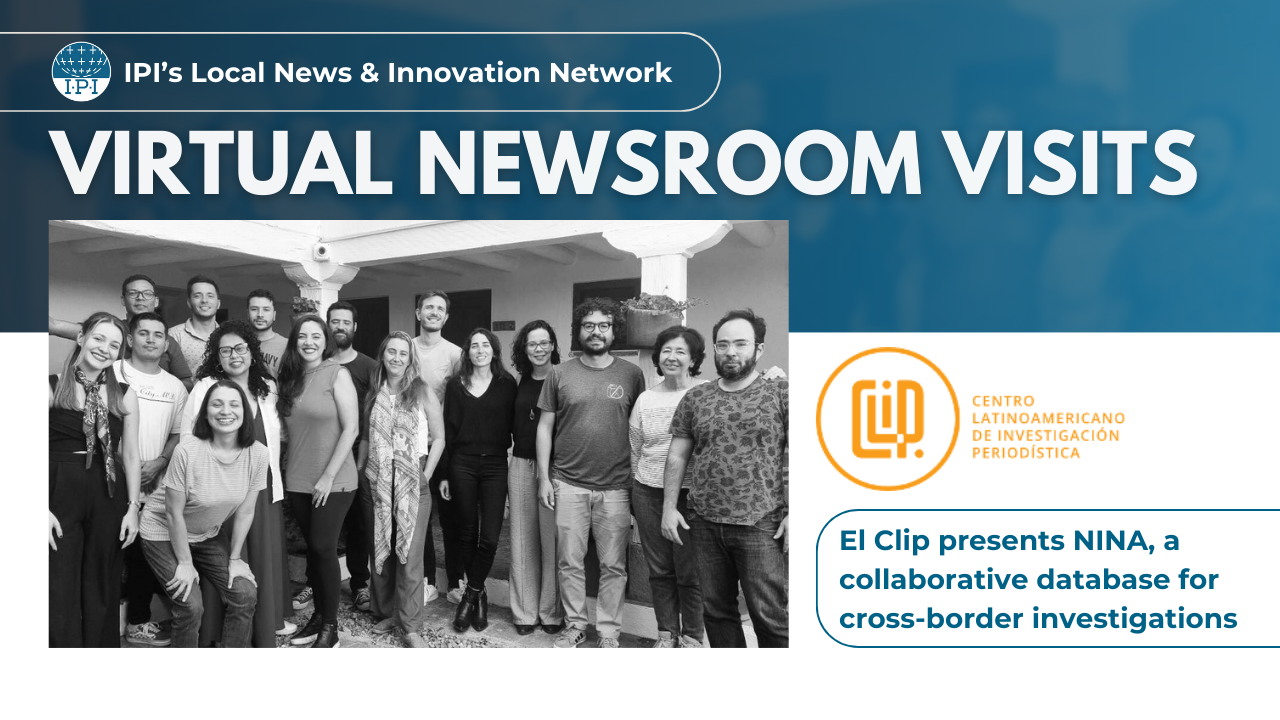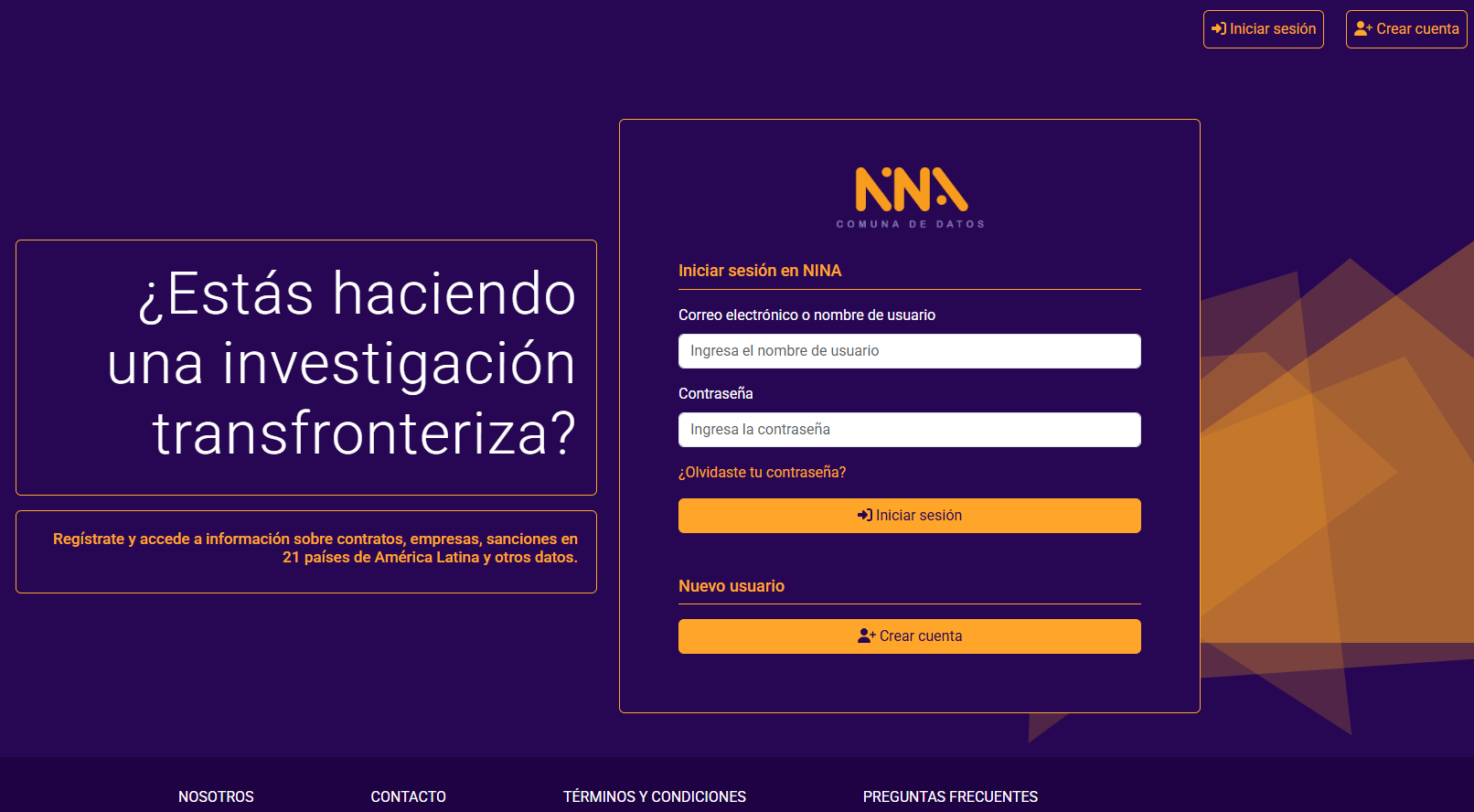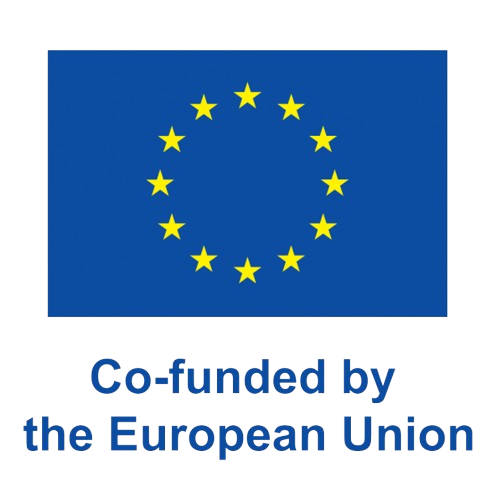[one_full last=”yes” spacing=”yes” center_content=”no” hide_on_mobile=”no” background_color=”” background_image=”” background_repeat=”no-repeat” background_position=”left top” hover_type=”none” link=”” border_position=”all” border_size=”0px” border_color=”” border_style=”” padding=”” margin_top=”” margin_bottom=”” animation_type=”” animation_direction=”” animation_speed=”0.1″ animation_offset=”” class=”” id=””][fusion_text]This text comes from IPI’s newsletter The Outlook. Sign up to receive future editions directly to your inbox.
🔎 In this week’s newsletter, how do journalistic organisations overcome the demanding nature of cross-border investigative reporting?
Join the next Virtual Newsroom Visits with El Centro Latinoamericano de Investigación Periodística (CLIP), on January 22 at 16:00 CET to find out about NINA, a collaborative database for cross-border investigations.[/fusion_text][imageframe lightbox=”no” lightbox_image=”” style_type=”none” hover_type=”none” bordercolor=”” bordersize=”0px” borderradius=”0″ stylecolor=”” align=”none” link=”https://ipi.media/events/virtual-newsroom-visit-el-clip-nina-investigations-database/” linktarget=”_blank” animation_type=”0″ animation_direction=”down” animation_speed=”0.1″ animation_offset=”” hide_on_mobile=”no” class=”” id=””]  [/imageframe]🗓 Register to save your spot[separator style_type=”none” top_margin=”10px” bottom_margin=”10px” sep_color=”” border_size=”” icon=”” icon_circle=”” icon_circle_color=”” width=”” alignment=”center” class=”” id=””][fusion_text]
[/imageframe]🗓 Register to save your spot[separator style_type=”none” top_margin=”10px” bottom_margin=”10px” sep_color=”” border_size=”” icon=”” icon_circle=”” icon_circle_color=”” width=”” alignment=”center” class=”” id=””][fusion_text]
The challenge: delivering costly investigative reporting
[/fusion_text][fusion_text]In the virtual visit next week, on January 22, we will explore how media organizations can build database products to both instrumentalise their knowledge and empower other journalists in access, processing and use of complex information.
Our host, El Clip is an independent media organization committed to fostering collaborative cross-border investigative journalism and leveraging technological innovation to serve journalism in Latin America.
Founded in 2019, El Clip emerged from a vision shared by journalists Giannina Segnini (Costa Rica), Marina Walker-Guevara (Argentina), and María Teresa Ronderos (Colombia) to create a Latin American center for investigations that puts transparency and community at the forefront of its work.
From the start, El Clip tackled complex transnational projects, such as Faith Transnationals, which brought together 16 media outlets across 13 countries to uncover the growing influence of religious fundamentalism in the region; and The Miroslava Project, which delved into years of reporting by Mexican journalists on the murder of investigative reporter Miroslava Breach.
Since then, El Clip has expanded its team and built partnerships with journalists spanning the United States, Mexico, Argentina, and Brazil. It has also collaborated with international organizations like Bellingcat and is a member of the Global Investigative Journalism Network (GIJN).[/fusion_text][fusion_text]
The solution: product by & for investigators
[/fusion_text][fusion_text] Equipped with the first-hand experience of conducting investigations in the region, the El Clip team realised the unique edge they had when it came to transforming and shaping media’s access to data and public information.
At the time, accessing official government data for investigative journalism was often a challenge due to the poor quality of digitised documents. This forced media organisations to develop their own methods for obtaining and extracting valuable information to support their investigations, which was time-consuming, costly and lacked a unified methodology.
El Clip’s product NINA came in to solve the challenge by enabling journalists to access every kind of public document, contract, and dataset in Latin America. Recognised as one of GIJN’s Top Investigative Tools of 2024, NINA uses AI to process unstructured data and allows journalists to upload, index, search, and share their own datasets — all without the need for special technical skills or coding.[/fusion_text][/one_full][two_third last=”no” spacing=”yes” center_content=”no” hide_on_mobile=”no” background_color=”” background_image=”” background_repeat=”no-repeat” background_position=”left top” hover_type=”none” link=”” border_position=”all” border_size=”0px” border_color=”” border_style=”” padding=”” margin_top=”” margin_bottom=”” animation_type=”” animation_direction=”” animation_speed=”0.1″ animation_offset=”” class=”” id=””][fusion_text]💡The tool has been used in investigations of lithium-related conflicts in Chile and Argentina, and election abuses in the Dominican Republic, Mexico, and Ecuador.[/fusion_text][/two_third][one_third last=”yes” spacing=”yes” center_content=”no” hide_on_mobile=”no” background_color=”” background_image=”” background_repeat=”no-repeat” background_position=”left top” hover_type=”none” link=”” border_position=”all” border_size=”0px” border_color=”” border_style=”” padding=”” margin_top=”” margin_bottom=”” animation_type=”” animation_direction=”” animation_speed=”0.1″ animation_offset=”” class=”” id=””][imageframe lightbox=”no” lightbox_image=”” style_type=”none” hover_type=”none” bordercolor=”” bordersize=”0px” borderradius=”0″ stylecolor=”” align=”none” link=”https://nina.elclip.org/login” linktarget=”_blank” animation_type=”0″ animation_direction=”down” animation_speed=”0.1″ animation_offset=”” hide_on_mobile=”no” class=”” id=””]  [/imageframe][/one_third][one_full last=”yes” spacing=”yes” center_content=”no” hide_on_mobile=”no” background_color=”” background_image=”” background_repeat=”no-repeat” background_position=”left top” hover_type=”none” link=”” border_position=”all” border_size=”0px” border_color=”” border_style=”” padding=”” margin_top=”” margin_bottom=”” animation_type=”” animation_direction=”” animation_speed=”0.1″ animation_offset=”” class=”” id=””][fusion_text]We will talk about:
[/imageframe][/one_third][one_full last=”yes” spacing=”yes” center_content=”no” hide_on_mobile=”no” background_color=”” background_image=”” background_repeat=”no-repeat” background_position=”left top” hover_type=”none” link=”” border_position=”all” border_size=”0px” border_color=”” border_style=”” padding=”” margin_top=”” margin_bottom=”” animation_type=”” animation_direction=”” animation_speed=”0.1″ animation_offset=”” class=”” id=””][fusion_text]We will talk about:
- The story of El Clip & its organisational set up
- The context of data access and investigative reporting in Latin America
- The tech solutions behind NINA
We will hear from:
- Rigoberto Carvajal, Information Architect and Tech Lead
- José Luis Peñarredonda, Community Editor
- Angela Cantador, Journalist
[/fusion_text]🔗Join the Virtual Newsroom Visit to learn more! [separator style_type=”none” top_margin=”” bottom_margin=”” sep_color=”” border_size=”” icon=”” icon_circle=”” icon_circle_color=”” width=”” alignment=”” class=”” id=””][/one_full][one_full last=”yes” spacing=”yes” center_content=”no” hide_on_mobile=”no” background_color=”” background_image=”” background_repeat=”no-repeat” background_position=”left top” hover_type=”none” link=”” border_position=”all” border_size=”0px” border_color=”” border_style=”” padding=”” margin_top=”” margin_bottom=”” animation_type=”” animation_direction=”” animation_speed=”0.1″ animation_offset=”” class=”” id=””][fusion_text]
Innovation Deck
[/fusion_text][/one_full][one_half last=”no” spacing=”yes” center_content=”no” hide_on_mobile=”no” background_color=”” background_image=”” background_repeat=”no-repeat” background_position=”left top” hover_type=”none” link=”” border_position=”all” border_size=”0px” border_color=”” border_style=”” padding=”” margin_top=”” margin_bottom=”” animation_type=”” animation_direction=”” animation_speed=”0.1″ animation_offset=”” class=”” id=””][imageframe lightbox=”no” lightbox_image=”” style_type=”none” hover_type=”none” bordercolor=”” bordersize=”0px” borderradius=”0″ stylecolor=”” align=”none” link=”https://www.investigativejournalismforeu.net/ij4eu-new-calls-for-funding-2025/” linktarget=”_blank” animation_type=”0″ animation_direction=”down” animation_speed=”0.1″ animation_offset=”” hide_on_mobile=”no” class=”” id=””]  [/imageframe][/one_half][one_half last=”yes” spacing=”yes” center_content=”no” hide_on_mobile=”no” background_color=”” background_image=”” background_repeat=”no-repeat” background_position=”left top” hover_type=”none” link=”” border_position=”all” border_size=”0px” border_color=”” border_style=”” padding=”” margin_top=”” margin_bottom=”” animation_type=”” animation_direction=”” animation_speed=”0.1″ animation_offset=”” class=”” id=””][fusion_text]
[/imageframe][/one_half][one_half last=”yes” spacing=”yes” center_content=”no” hide_on_mobile=”no” background_color=”” background_image=”” background_repeat=”no-repeat” background_position=”left top” hover_type=”none” link=”” border_position=”all” border_size=”0px” border_color=”” border_style=”” padding=”” margin_top=”” margin_bottom=”” animation_type=”” animation_direction=”” animation_speed=”0.1″ animation_offset=”” class=”” id=””][fusion_text]
[/fusion_text][/one_half][one_full last=”yes” spacing=”yes” center_content=”no” hide_on_mobile=”no” background_color=”” background_image=”” background_repeat=”no-repeat” background_position=”left top” hover_type=”none” link=”” border_position=”all” border_size=”0px” border_color=”” border_style=”” padding=”” margin_top=”” margin_bottom=”” animation_type=”” animation_direction=”” animation_speed=”0.1″ animation_offset=”” class=”” id=””][fusion_text]
More opportunities
📍Brussels, Belgium | Happening on January 23, 2025
📍Global | Deadline: February 28, 2025[/fusion_text][/one_full][fusion_text]Share your thoughts, reach out to the Media Innovation team and help us shape our media support programmes! Say hi – [email protected].
 [/fusion_text]
[/fusion_text]
